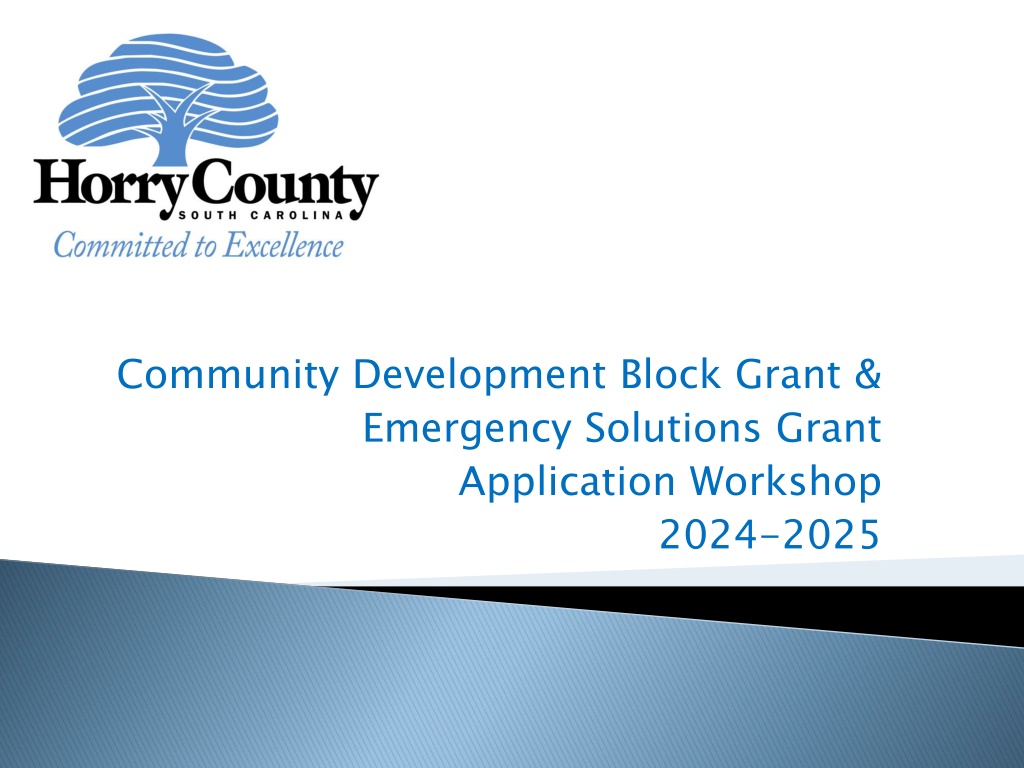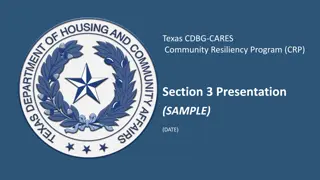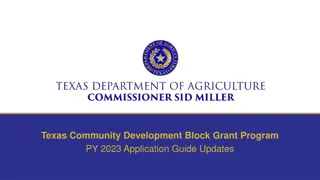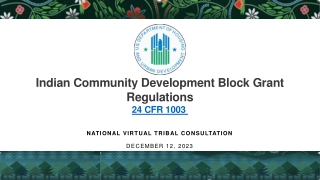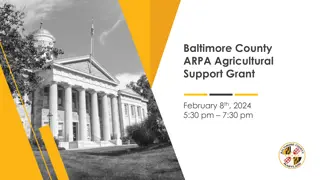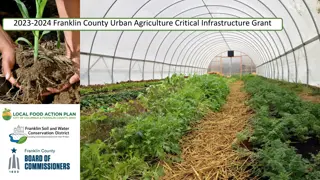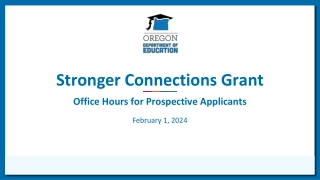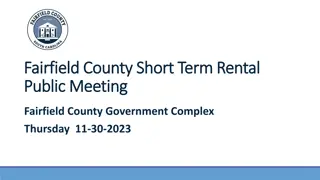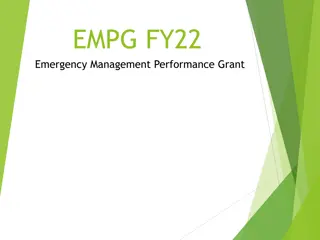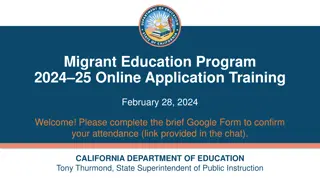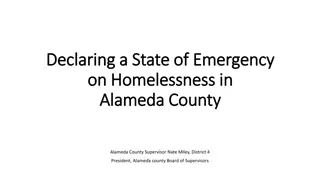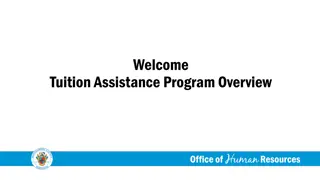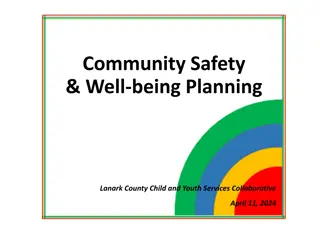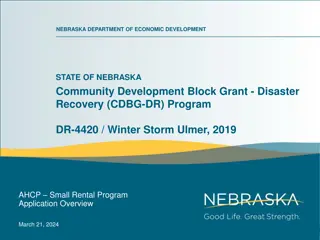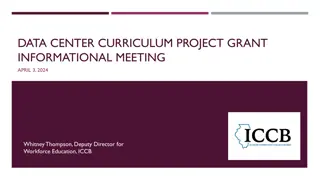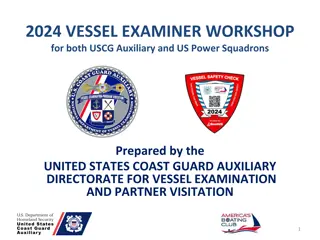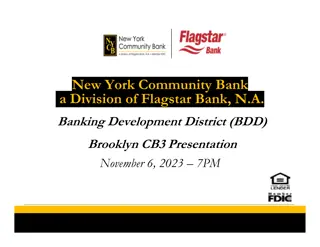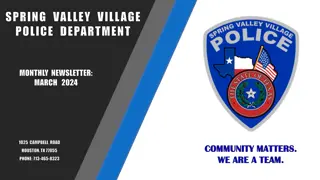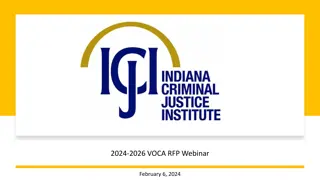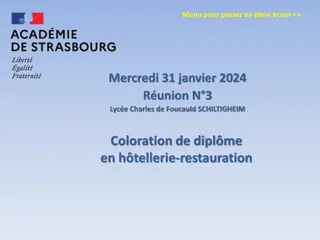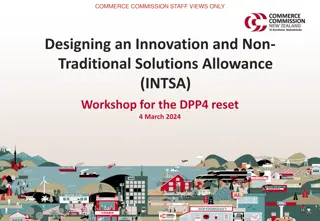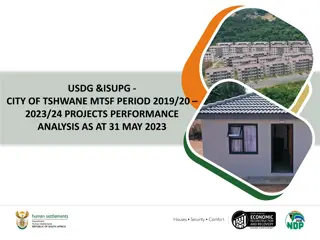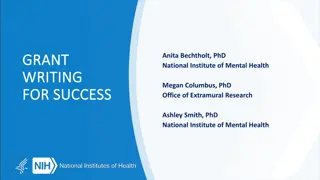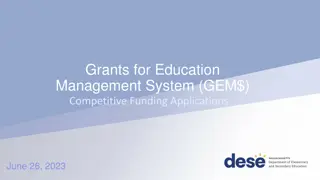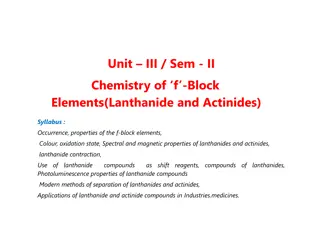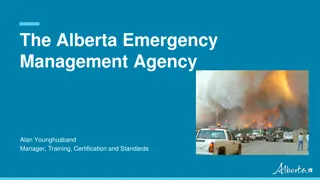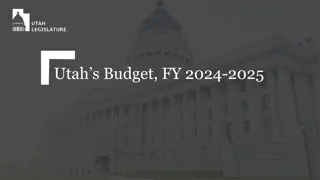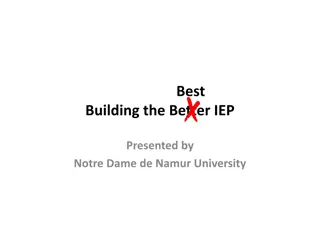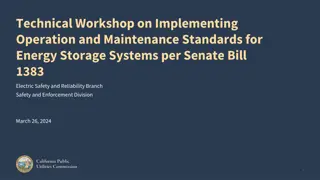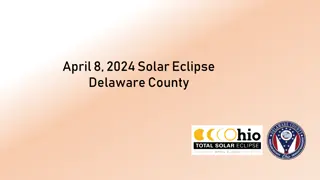Horry County Community Development Block Grant & Emergency Solutions Grant Application Workshop 2024-2025
Horry County is soliciting applications for projects serving unincorporated areas, with expected funding allocations similar to 2023. The grants from the U.S. Department of Housing and Urban Development aim to support public service projects for low to moderate-income individuals, such as job training, crime prevention, and services for the homeless and disabled.
Download Presentation
Please find below an Image/Link to download the presentation.
The content on the website is provided AS IS for your information and personal use only. It may not be sold, licensed, or shared on other websites without obtaining consent from the author. Download presentation by click this link. If you encounter any issues during the download, it is possible that the publisher has removed the file from their server.
Presentation Transcript
Community Development Block Grant & Emergency Solutions Grant Application Workshop 2024-2025
Horry County is requesting applications for projects serving unincorporated Horry County for: CDBG & ESG 2024-2025 funding allocations have not yet been announced by HUD 2024 funding allocations should be comparable to 2023 2023 Horry County allocations: CDBG $1,956,667 ESG $167,447
U.S. Department of Housing and Urban Development (HUD) provides annual Community Development Block Grant (CDBG) funding to Horry County. Authorized under Title I of the Housing and Community Development Act of 1974. Codified at 24 CFR 570
Created in 2008, entitlement area consists of Horry County and the City of Myrtle Beach. As part of a joint agreement, a portion of the funding is passed through Horry County to the City of Myrtle Beach for its CDBG programs.
- -Project Must be a New or Expanded Public Service Project Must be a New or Expanded Public Service - -Project must primarily serve unincorporated Horry County Project must primarily serve unincorporated Horry County - -Project must meet a CDBG National Objective Project must meet a CDBG National Objective - -benefit low to moderate income persons (<80% AMI) benefit low to moderate income persons (<80% AMI) - -Project must not subsidize normal operations Project must not subsidize normal operations -Examples of Public Services include: - Job Training - Crime Prevention - Child Care and After-School Programs - Services for the Homeless - Services for the Disabled Source: U.S. Department of Housing and Urban Development www.hud.gov
CDBG National Objectives Urgent Need* Low/Mod Income Slum/Blight *Horry County CDBG reserves this area of funding for county use only as it is only eligible for use in rare situations. Area Benefit Area Basis Limited Clientele Spot Basis Urban Renewal Housing Jobs
https://hud.maps.arcgis.com/apps/webappviewer/index.html?id=ffd0597ehttps://hud.maps.arcgis.com/apps/webappviewer/index.html?id=ffd0597e 8af24f88b501b7e7f326bedd
Socastee Bucksport
Funding Limitations Public Services Administration Benefit LMI Persons or Areas At least 70% of total grant Public Services Capped at 15% of the total grant Administration funds Capped at 20% of the total grant Rate of Expenditure Monitored by HUD Subrecipients must have capacity Reimbursed after documentation of payment Annual grant we will reclaim unused funds Projects
Generally, these types of activities are NOT eligible: General conduct of government (Including acquisition, construction, or reconstruction of buildings for this purpose) Supplanting funds CDBG funds can not be used to replace local money for things that should already be included in general fund budgets. CDBG can supplement existing budgets, but can not be used to cover things that were paid from local government resources within the last 12 months. Political activities Financing for political activities or to engage in other partisan political activities are ineligible (includes lobbying) Income payments Payments for food, clothing or shelter provided directly to an individual Construction of new housing Economic Development that results in business relocation or job pirating General conduct of government Supplanting funds Political activities Income payments Construction of new housing by units of local government Economic Development that results in business relocation or job pirating by units of local government Source: U.S. Department of Housing and Urban Development www.hud.gov
U.S. Department of Housing and Urban Development (HUD) provides annual Emergency Solutions Grant (ESG) funding to Horry County. Originally authorized under the McKinney-Vento Homeless Assistance Act of 1987 Reauthorized and modified under the HEARTH Act of 2009 Codified at 24 CFR Part 576
Provide assistance to homeless and at risk of homelessness individuals and families Rapidly re-house homeless individuals and families; Prevent families and individuals from becoming homeless; Engage homeless individuals and families living on the street; Improve the number and quality of emergency shelters for homeless individuals and families; Provide essential services to shelter residents; Maintain required HMIS beneficiary data Housing First approach
The Stewart B. McKinney Homeless Assistance Act defines the homeless or homeless individual or homeless person : An individual who lacks a fixed, regular, and adequate night who has a primary night An individual who lacks a fixed, regular, and adequate night- -time residence; and who has a primary night- -time residence that is: time residence; and time residence that is: A supervised publicly or privately operated shelter designed to provide temporary living accommodations; An institution that provides a temporary residence for individuals intended to be institutionalized; or A public or private place not designed for, or ordinarily used as, a regular sleeping accommodation for human beings
Homelessness Specific definitions apply depending upon assistance provided: Street Outreach, Emergency Shelter: 24 CFR 576.2 Homelessness Prevention: 24 CFR 576.103 Rapid Rehousing: 24 CFR 576.104 Homelessness
Eligible activities include: - Rapid Rehousing - Homelessness Prevention - Street Outreach - Emergency Shelter - HMIS - Administration Source: U.S. Department of Housing and Urban Development www.hud.gov
Rapid Rehousing provides housing relocation, stabilization services, and short and medium-term rental assistance to help homeless individuals or families move as quickly as possible into permanent housing and achieve stability in that housing. Table 5.5 ESG Rapid Re-Housing Eligible Activities Housing Relocation & Stabilization Services Short and/or Medium-Term Rental Assistance
Homelessness Prevention provides housing relocation, stabilization services and short and medium-term rental assistance necessary to prevent an individual or family from moving into an emergency shelter or another place described in Category 1 of the Defining Homeless Rule. Table 5.4 ESG Homelessness Prevention Eligible Activities Housing Relocation & Stabilization Services Short- and/or Medium-Term Rental Assistance
ESG funds may be used for costs of providing essential services necessary to reach out to unsheltered homeless people, referred to as Street Outreach. Table 5.2 ESG Street Outreach - Eligible Activities Essential Services Emergency Health Services Transportation Case Emergency Mental Health Services Services for Special Populations Engagement Management
Emergency Shelter is defined as any facility, where the primary purpose is to provide a temporary shelter for the homeless in general, or for specific populations of the homeless people and which does not require occupants to sign leases or occupancy agreements. Table 5.3 ESG Emergency Shelter Eligible Activities Essential Services Child Care Education Services Legal Services Life Skills Training Case Management Outpatient Health Services Mental Health Services Employment Assistance & Job Search Substance Abuse Treatment Services Transportation Services for Special Populations Renovation Shelter Operations Assistance Required Under the Uniform Relocation Assistance and Real Property Acquisition Policies Act of 1970
Section 416(f) of the McKinney-Vento Act requires that ESG-funded projects participate in the Homeless Management Information System (HMIS). The ESG interim rule made certain costs eligible to the extent necessary to enable this participation. HUD published a rule that governs HMIS and is codified at 24 CFR Part 580.
Incomplete Application Ineligible Activity (CDBG Public Services Only) Not a New or Expanded Public Service Financial Statements Don t Add Up Non-Profit Does Not Show Capacity or Cash Flow Ineligible Jurisdiction Lack of Experience with Proposed Activity Insufficient Match Funds, When Required
- CDBG activities must meet a National Objective and be eligible under 24 CFR 570. - ESG activities must be eligible under 24 CFR 576. - All projects must fulfill needs as identified through: - A 5-Year Consolidated Plan (2023-2027 Consolidated Plan) (See Community Development page at https://www.horrycountysc.gov/departments/community- development/public-notices/ - Results of a Citizen Participation Process, required by HUD - Public Notices, Public Hearings (Needs Assessment and Action Plan Input), Surveys, & Community Meetings - Feedback (Council, Residents, HUD, & Subrecipients) Source: U.S. Department of Housing and Urban Development www.hud.gov
Application Deadlines CDBG Public Service: February 13, 2024 5 PM ESG: February 13, 2024 5 PM Note: Staff may follow up with questions about your project or request additional documentation
Submit Annual Action Plan: May 15, 2024 HUD Review-Annual Action Plan: Summer 2024 Notification of Awards: Fall 2024 We will provide you with timeline updates when available If funded, please plan on entering into an agreement with the County in Fall 2024 Agreement period will run from July 1, 2024 to June 30, 2025.
More information is available online on the Horry County Community Development website: https://www.horrycountysc.gov/departments/community- development/public-notices/ The Community Development web page provides helpful documents, such as: Application forms (Word/Excel) Program Limits (Income, etc.) Consolidated Plan (2023-2027) Assessment of Fair Housing
Please ask any application or general CDBG questions that you may have. Please email any CDBG project-specific questions to: Dobson.Michael@horrycountysc.gov
Horry County Community Development 100 Elm Street Conway, SC 29526 (843) 915-7033 Dobson.Michael@horrycountysc.gov (CDBG) Wiestner.Carol@horrycountysc.gov (ESG) Please submit questions through email so that answers can be published as addenda
